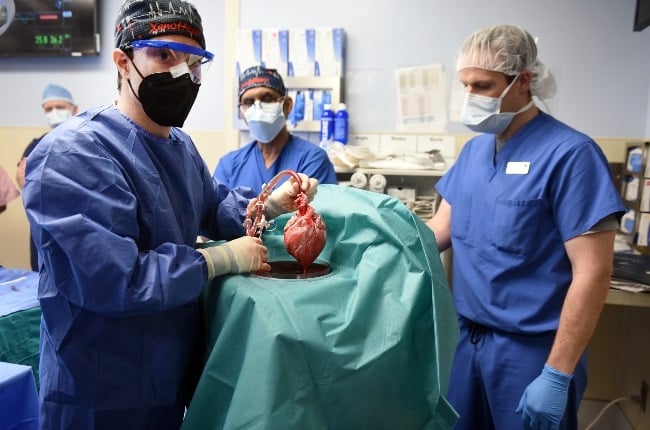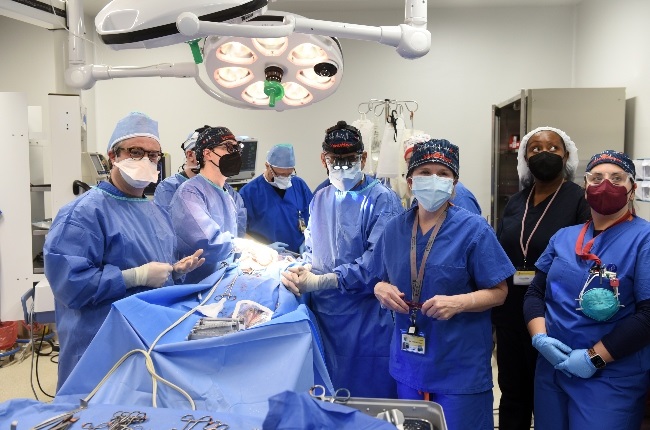The American man who became the first person in the world to receive a pig heart died as a result of the organ being infected, say doctors at the Maryland Medical Centre where the surgery was performed.
David Bennett, a 57-year-old ex-convict, died on 8 March two months after the transplant.
But while the cause of death was not pinned down to anything in particular at the time of his death, the lead surgeon, Dr Barney Griffith, has now suggested that porcine virus – a common type of pig virus – was perhaps “the actor, or could be the actor, that set this whole thing off”.
Doctors say David was out of options when he agreed to receive a heart from a pig in a ground-breaking transplant surgery.
He was too sick to receive a human heart but would have died without a new one.
After the transplant, David’s medical team had said he was recovering well but it was too soon to tell if his body would eventually reject the heart.
“It was quite amazing. You go talk to this gentleman and he’s got a pig heart. Literally, he has a pig heart,” Griffith said at the time.
The human body often rejects transplants even if the organ comes from a human. This is because the body recognises transplanted organs as foreign objects.
To get rid of it, the immune system attacks the transplanted organ’s cells. To avoid this happening, the pig heart harvested for David’s transplant was genetically manipulated to reduce the chances of rejection.
David initially seemed to be doing well, however, the doctors behind the transplant have now revealed that they attempted to treat him for a pig cytomegalovirus infection in the weeks before his death.
Cytomegaloviruses are related to the herpes viruses that cause cold sores and shingles. Once animals are infected, the viral DNA remains inside some cells.
Joachim Denner of the Institute of Virology at the Free University of Berlin says this could be prevented in future by more accurate testing of potential pig heart donors.
“It’s a latent virus and hard to detect,” Denner says.
“But if you test the animal better, it will not happen. The virus can be detected and easily removed from pig populations."
He says the virus went undetected in the pig that supplied David's donor heart and was thus transmitted
According to experts, if such transplants are successful in the long run, they could provide relief for many patients.
“People die all the time on the waiting list, waiting for organs,” says the University of Maryland School of Medicine’s Dr Christine Lau, who was part of the medical team during the transplant.
“If we could use genetically engineered pig organs they’d never have to wait, they could basically get an organ as they needed it.”
Doctors have long experimented with animal organs to help save lives but the heart transplant is the most advanced experiment in the field so far.
Experts say pigs are perfect donors because their hearts are roughly the same shape and size as the human heart.





